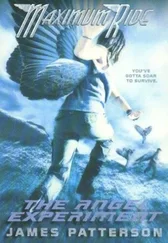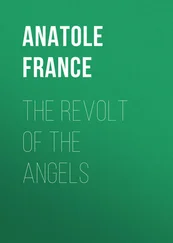Yukio Mishima - The Decay Of The Angel
Здесь есть возможность читать онлайн «Yukio Mishima - The Decay Of The Angel» весь текст электронной книги совершенно бесплатно (целиком полную версию без сокращений). В некоторых случаях можно слушать аудио, скачать через торрент в формате fb2 и присутствует краткое содержание. Год выпуска: 2010, Издательство: CCV Digital, Жанр: Старинная литература, на английском языке. Описание произведения, (предисловие) а так же отзывы посетителей доступны на портале библиотеки ЛибКат.
- Название:The Decay Of The Angel
- Автор:
- Издательство:CCV Digital
- Жанр:
- Год:2010
- ISBN:нет данных
- Рейтинг книги:5 / 5. Голосов: 1
-
Избранное:Добавить в избранное
- Отзывы:
-
Ваша оценка:
- 100
- 1
- 2
- 3
- 4
- 5
The Decay Of The Angel: краткое содержание, описание и аннотация
Предлагаем к чтению аннотацию, описание, краткое содержание или предисловие (зависит от того, что написал сам автор книги «The Decay Of The Angel»). Если вы не нашли необходимую информацию о книге — напишите в комментариях, мы постараемся отыскать её.
The Decay Of The Angel — читать онлайн бесплатно полную книгу (весь текст) целиком
Ниже представлен текст книги, разбитый по страницам. Система сохранения места последней прочитанной страницы, позволяет с удобством читать онлайн бесплатно книгу «The Decay Of The Angel», без необходимости каждый раз заново искать на чём Вы остановились. Поставьте закладку, и сможете в любой момент перейти на страницу, на которой закончили чтение.
Интервал:
Закладка:
The doctor had told him he had tumor of the pancreas. Smiling, he had said that it was benign. Smiling, benign . To stretch out hopes on such words was to trample on the pride of a man who had lived through eighty-one years. Honda considered refusing surgery when he returned to Tokyo. If he did, however, the doctor was certain to bring pressure upon “near relatives.” He had already fallen into the trap. He had fallen into one trap when he had been born into this world, and there ought not to be another trap waiting at the end of the way. He must laugh at it all, thought Honda. He must pretend to hope. The sacrificial kid in India had gone on struggling for so long after its head had fallen.
The eye of the troublesome supervisor no longer upon him, Honda leaned on his stick and reeled extravagantly as he made his way up the slope. He began to feel as if he were being funny. The pain left him and his step was brisker.
The smell of summer grasses filled the air. Pines were thick along the road. Leaning on his stick, he looked up at the sky. In the strong sunlight the cones among the thick branches were etched scale by scale. He came to an abandoned tea patch on the left, matted with spider webs and creepers.
There were strips of shadow ahead. The nearer ones were like the slats of a damaged blind, the farther ones were richly black, gathered in threes and fours, like sashes for mourning weeds.
A large pine cone lay fallen on the road. On the pretext of picking it up, he sat down on a giant pine root. His stomach was heavily, painfully hot. The fatigue, unable to find an outlet, bent like a rusty wire. As he toyed with the cone, fully opened and dried, the tea-colored scales put up a powerful resistance to his fingers. Dew-flowers dotted the way, their blossoms wilting in the sun, delicate traces of greenish lavender among leaves like young swallows’ wings. The great pine tree against which he leaned, the celadon of the sky above, the clouds like leavings from a broom—everything was ominously, threateningly dry.
Honda could not identify the insect songs that filled it all. A sound like the drone bass of all insects, a sound like a gnashing of teeth in a nightmare, a sound like an aimless echoing against the ribs.
He stood up again, and again he wondered whether he would reach the mountain gate. As he walked on, he could only count the number of shadows ahead. How many more shadows could he make his way past in the intensity of the heat, the torment of the slope? But he had already passed three since he had begun counting. A shadow stretched halfway across the road. Should he count it as a full shadow or only half a shadow?
Where the road curved gently to the left there were bamboo thickets. They were like settlements in the world of man. The delicate young leaves crowded thickly one against another, some light as asparagus, some black with a powerful malice and perversity.
As he sat down and wiped at the sweat once more, he saw a butterfly, the first. It was an outline in the distance, and cobalt freshly adorned the russet of the wings as it came nearer.
He came to a marsh. He rested under the strong green of a chestnut on the bank. There was not a breath of air. A dead pine tree lay like a bridge across a corner of the yellow-green marsh, the surface of which was disturbed only by the tracks of water striders. Around it shimmered tiny ripples, disturbing the dull blue reflection of the sky. The dead tree was a reddish brown to the tips of its needles. Propped up, it appeared, by branches in the marsh bottom, the trunk was above water, rusty red in a sea of green, its original shape still intact. It continued without a doubt to be a pine tree.
He started off again, as if following the hairtail butterfly that darted out happily from among the still plumeless grasses and foxtails. The tarnished green of the cypress grove across the marsh spread to the near side. Little by little the shadows were thicker.
He could feel the sweat coming through his shirt and soaking the back of his suit coat. He could not be sure whether it was a healthy sweat from the heat or a cold, oily sweat. In any event he had not sweated so profusely since he had reached old age.
Where the cypress grove gave way to a grove of cryptomeria, there stood a lone nemu tree. The soft clusters of leaves in among the hard needles of the cryptomerias were like wraiths, like afternoon slumber. They made him think of Thailand. A white butterfly from the nemu led him on his way.
The road was steeper. The mountain gate would be near. The cryptomerias were thicker, and a cool breeze came from among them. Walking was now easy. The bands across the road had until now been the shadows of trees. Now they were strips of sunlight.
The butterfly cut an uncertain path through the darkness of the cryptomeria grove. It drew a low line across ferns shining liquidly in sunlight to the black gate within. For some reason, thought Honda, all the butterflies hereabouts flew low near the ground.
He passed the black gate. The mountain gate lay ahead. So finally he was at the Gesshuuji. He had lived these sixty years only to come again.
Gazing at the prow-shaped pine that served as a carriage stop, Honda found it hard to believe that he was here. He felt strangely refreshed, even reluctant to reach his destination. He stood at a pillar of the mountain gate, which was flanked by two much smaller and lower gates. Sixteen-petal chrysanthemums were stamped on the ridge tiles. On the left pillar was a neat, lady-like sign identifying the temple as the Gesshuuji, under the protection of the Imperial House. On the right pillar was a dim inscription in relief: “Peace on Earth. Within is Housed the Imperial Recitation Text of the Prajñāparamitā-sūtra . A Fortress of the Law of His Benign Majesty.”
There were five stripes on the egg-colored earthen wall to indicate the high rank of the temple. Across yellowish gravel, steppingstones led to the doorway in a checkered pattern. Honda counted them with his stick, and when he had come to ninety he was at the closed doors. In the recessed grip his hand touched a chrysanthemum and clouds cut from white paper.
The farthest corner of the interior came back to him. He stood motionless, forgetting to announce himself. Sixty years ago the young Honda had stood on this same doorstep before this same door. The paper would have been changed a hundred times in those years, but a clean white expanse blocked the way now as it had that cold spring day. Though the grain of the wood was perhaps a little more prominent, it showed little sign of the wear of the winds and the snows. Only an instant had passed.
Ill at the Obitoké inn, Kiyoaki had staked everything on this trip to the Gesshuuji. Feverish, he would still be waiting for Honda’s return; and what would he think when he saw that in that instant Honda had become a bent, immobile old man?
A steward probably in his sixties, dressed in an open-necked shirt, came to receive him. He needed help in negotiating the last high step. Leading him to a suite of rooms, eight mats and six, in the main hall, the man said politely that they had received his letter and perused its contents, and motioned him to a cushion laid out with geometric precision on a mat with a figured border, white on black. He did not remember the rooms from six decades before.
On the scroll in the alcove, in the style of Sesshuu, a dragon twisted and writhed among storm clouds. Below it was a crisp, tidy little arrangement of wild carnations. An old nun in a white kimono of cotton crepe and a white obi brought red and white sweets and cold tea on a rimmed tray. Through open doors green floated in from the garden. There was a thick growth of maples and arbovitae, and beyond it a white gallery; and nothing more.
Читать дальшеИнтервал:
Закладка:
Похожие книги на «The Decay Of The Angel»
Представляем Вашему вниманию похожие книги на «The Decay Of The Angel» списком для выбора. Мы отобрали схожую по названию и смыслу литературу в надежде предоставить читателям больше вариантов отыскать новые, интересные, ещё непрочитанные произведения.
Обсуждение, отзывы о книге «The Decay Of The Angel» и просто собственные мнения читателей. Оставьте ваши комментарии, напишите, что Вы думаете о произведении, его смысле или главных героях. Укажите что конкретно понравилось, а что нет, и почему Вы так считаете.











